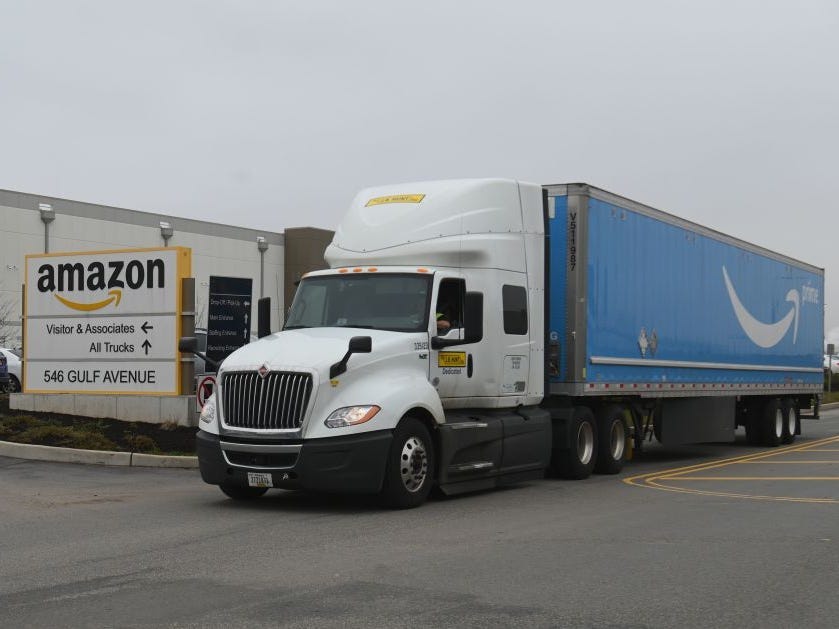
- Amazon ordered over 700 compressed natural gas trucks, according to Reuters.
- The trucks will use engines provided by a joint venture between Cummins Inc and Westport Fuel Systems.
- The company previously pledged to become carbon neutral by 2040.
- Visit the Business section of Insider for more stories.
Amazon is upgrading its truck fleet to add hundreds of vehicles that run on natural gas as it explores new ways to reduce carbon emissions, according to Reuters.
The tech company ordered over 700 compressed natural gas trucks that would run from warehouses to distribution centers, the report said. The company is testing new vehicle types including electric, compressed natural gas, among others, Reuters reported.
Amazon did not immediately comment to Insider about the report.
The trucks will be supplied by a joint venture between Cummins Inc and Westport Fuel Systems Inc, Reuters said.
Amazon has been exploring avenues to become carbon neutral by 2040 in support of the Climate Pledge commitment, according to its statement in October.
Panic buying caused by the pandemic increased trucking volumes by around 30% in 2020 as delivery activity surged, according to a June report by McKinsey & Company.
Read More: Amazon's first electric delivery vans are now making deliveries - see how they were designed
Most of the country's freight is delivered through medium and heavy-duty trucks which make over 20% of the industry's greenhouse gas emissions although they make up only 5% of the road fleet, according to Reuters.
Earlier this month, Amazon said that its electric delivery vehicles began making deliveries in Los Angeles. The company plans to expand the vehicles in 15 more cities in 2021 and have 10,000 on the road by 2022 and 100,000 by 2030.
Amazon first showcased its planned custom electric delivery vehicles in October and it first announced in February 2020 that it ordered the vehicles from electric automaker Rivian.
The online retailer reportedly delivers 2.5 billion packages per year.
Amazon reported its fourth-quarter 2020 results in February with a sales volume increasing to 39%.